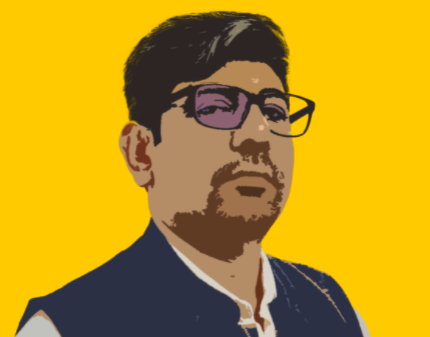Prashant’s coming of age was on the banks of the Ganga river in his city of birth in Kanpur, the largest metropolis in Uttar Pradesh, India. As a teenager, he witnessed the rapid transition from the old India to the new India. From the old industrial pollution to the new urban pollution also. Cars, industry, population growth. Ganga, the most sacred of rivers worshipped by Hindus is named after the goddess of purification and forgiveness.
Thirty odd years later, Prashant explains to me how his professional life is connected to the very meaning of the Ganga – cleaning up the lifeline of over 400 million people.
Of water and wine
I got to know Prashant in 2015. We jointly went to visit soybean farmers nearby Bhopal in the Madya Pradesh state of India. After a long day of hard work, over dinner, Prashant offered me a glass of fine Burgundy wine. I discovered his nose for good wines. A rather unusual phenomenon in India. ‘The making of wine is among the more noble transformations of water, and the middle class is gradually discovering this’. That’s when Prashant explained to me his passion for water.
The mythical Ganga
A geographer by training, his connection to water stems from his early awareness of how waters in his own Ganga turned from blue to green to brown, from clear to polluted. The Ganga river is mythical. Its sheer length (2525 km) crosses through various states and connects manyfold biomes, cultures and jurisdictions. It rises in the western Himalayas and then flows across India eastwards where it empties into the Bay of Bengal. It’s the third largest river on Earth by discharge and the lifeline to over 400 million Indians and at least another 100 million+ Bangladeshi. The Hindus consider the Ganga as the most sacred of all rivers, associated with the mother to almost all other gods.
The Ganga connects pure with impure.
Prashant Pastore
Prashant explains more about his river: “The Ganga connects pure with impure. In the holy city of Varanasi – both place of birth of Shiva, as well as the place where Buddha started Buddhism – Hindus dip in the Ganges to purify their souls, and just a few hundred kilometres more upstream the river is threatened by serious pollution. This poses not only a threat to humans but also to animals – fish species, amphibians, reptiles and mammals, including the South Asian river dolphin.”
The ‘Clean-up Ganga’ operation
Prashant leads Solidaridad’s participation in the large national clean-up operation of the Ganga. The focus is on sugarcane and leather tanneries. Cleaner technologies assure affluent waters being less pollutive, and the lack of water being smarter used, in particular for irrigation. “After all, 65% of the Ganga water is used for agriculture”, Prashant explains. “Water is life to rural communities, to industry, to households, and the rapidly rising urban population. In particular, the construction industry is creating a critical situation by highly increasing demand.”
I ask him how he sees the battle on water also against the backdrop of climate change. “Rainfall patterns change, glaciers are melting, groundwater is reducing rapidly. “Yes”, he sighs, “we are sitting on a potential time bomb, and that is why our approach can be the key to overcome future conflicts”.
Water is life to rural communities, to industry, to households, and the rapidly rising urban population.
Prashant Pastore
Prashant mentions the magic word “MSP”: multi-stakeholder platforms. “With people like Roshan Tamak – CEO of DCM sugars – and many others, we try to find a better balance between stakeholders. Science-based solutions, data-driven, and with farmers included in the debate, we have successfully shown to bring climate-smart water solutions with farmers, industry and other water stakeholders.”
Smart water management
Prashant explains several breakthroughs on salina soil seed management, on new irrigation methods, on efficient water recycle management. The wealth of knowledge is impressive. “I like the word ‘glocality’ you have introduced”, he tells me. “We can bring all existing knowledge on smart water management in the world and connect it to our local data models, to ensure the build-up of a new economy that works for the poor”.
We can create a better balance on the water for nature, for people, for food, for the economy.
Prashant Pastore
Prashant, after all, works at Solidaridad and understands he needs to amplify the voices of all these millions of unassumed farmers living at the Ganga banks. “We have to give them a voice at these MSPs, and by doing that, we can create a better balance on the water for nature, for people, for food, for the economy. I’m convinced that through science & data, technology and good governance we can find common ground and let the Ganga connect it all together also for future generations to come”.

